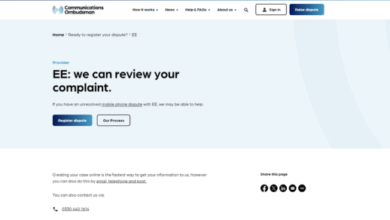
Web hosting is a dynamic industry, with new trends and technologies constantly emerging. In 2023, several key trends are shaping the web hosting landscape. Let’s explore 30 points along with the associated pros and cons for each of these trends:
1. Cloud-Native Hosting:
- Pros: Scalability, flexibility, and cost-efficiency.
- Cons: Complex migration for existing websites.
2. Edge Computing Integration:
- Pros: Faster content delivery and reduced latency.
- Cons: Limited availability of edge data centers.
3. Kubernetes and Containerization:
- Pros: Efficient resource utilization and easy scaling.
- Cons: Requires expertise in container orchestration.
4. Green Hosting Initiatives:
- Pros: Environmentally friendly, reduced carbon footprint.
- Cons: Green hosting options may be limited.
5. Serverless Hosting:
- Pros: Pay only for actual usage, auto-scaling.
- Cons: Limited control over server resources.
6. AI and Automation:
- Pros: Improved server management and security.
- Cons: Potential job displacement in the hosting industry.
7. Quantum Computing Impact:
- Pros: Potential for groundbreaking hosting advancements.
- Cons: Quantum computing adoption is in its early stages.
8. Increased Security Measures:
- Pros: Enhanced protection against cyber threats.
- Cons: Security costs may rise.
9. Decentralized Web Hosting:
- Pros: Improved data privacy and censorship resistance.
- Cons: Limited mainstream adoption.
10. Progressive Web Apps (PWAs): – Pros: Enhanced user experience and performance. – Cons: May require changes in hosting infrastructure.
11. IPv6 Adoption: – Pros: Expanded address space and improved security. – Cons: Transition from IPv4 can be challenging.
12. Zero Trust Security Model: – Pros: Reduced attack surface and improved data protection. – Cons: Implementation complexity.
13. CDN Expansion: – Pros: Faster content delivery and improved user experience. – Cons: Costs associated with CDN services.
14. Augmented Reality (AR) and Virtual Reality (VR) Hosting: – Pros: Hosting immersive web experiences. – Cons: Requires significant server resources.
15. 5G Network Integration: – Pros: Faster mobile browsing and real-time experiences. – Cons: Coverage and infrastructure limitations.
16. Enhanced Privacy Regulations: – Pros: Improved data protection and user trust. – Cons: Compliance efforts may be resource-intensive.
17. Hybrid and Multi-Cloud Hosting: – Pros: Redundancy, flexibility, and vendor diversity. – Cons: Complex management and cost considerations.
18. Blockchain-Powered Hosting: – Pros: Enhanced security and data integrity. – Cons: Limited practical applications.
19. Low-CodeNo-Code Development: – Pros: Rapid website and app development. – Cons: Limited customization and scalability.
20. 247 Customer Support: – Pros: Improved customer satisfaction and issue resolution. – Cons: Costs associated with extended support hours.
21. Sustainable Data Centers: – Pros: Reduced environmental impact and energy costs. – Cons: Initial infrastructure investments.
22. IoT Hosting Solutions: – Pros: Support for Internet of Things applications. – Cons: Increased security challenges.
23. Voice Search Optimization: – Pros: Improved SEO for voice search queries. – Cons: Adaptation to voice-friendly content.
24. API-First Hosting: – Pros: Seamless integration with external services. – Cons: Security and privacy concerns with APIs.
25. Real-Time Data Processing: – Pros: Enhanced user experiences with dynamic content. – Cons: Increased server resource demands.
26. Cross-Platform Hosting: – Pros: Compatibility with various devices and operating systems. – Cons: Development and testing complexities.
27. Microservices Architecture: – Pros: Scalability and agility in app development. – Cons: Increased management complexity.
28. Web3 Integration: – Pros: Support for blockchain-based applications. – Cons: Emerging technology with limited mainstream adoption.
29. Enhanced Analytics and Monitoring: – Pros: Better insights into website performance. – Cons: Data privacy concerns.
30. Quantum-Safe Encryption: – Pros: Protection against future quantum computing attacks. – Cons: Quantum-safe encryption is still evolving.
In conclusion, staying informed about these web hosting trends can help businesses and hosting providers adapt to changing technology and user expectations. While these trends offer numerous benefits, they also come with potential challenges and costs that must be carefully managed and considered in your web hosting strategy.




